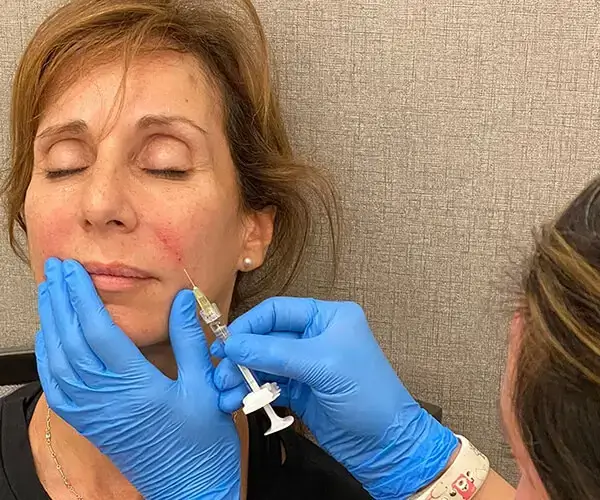What Does Advanced Acne Therapy Entail?
By Dr. Stephen Cosentino
PRESIDENT OF EMPIRE MEDICAL TRAINING
Of all possible cosmetic complaints, acne is among the most common. It’s certainly the most common cosmetic complaint that’s not directly correlated with advancing age.
Fortunately, acne responds well to treatment. Many mild, transient cases require nothing more than regular face-washing and an over-the-counter facial scrub. Moderate to severe cases demand more aggressive intervention: specially formulated topical medications, minimally invasive clinical treatments, or both.
Let’s review the differences between these two approaches to advanced acne therapy and the indications for each.
What Is Advanced Acne Therapy?
“Advanced acne therapy” means one of two things:
- Clinical acne treatments performed by highly trained professionals — often board-certified dermatologists or those working under their direct supervision — who have completed advanced acne therapy workshops
- Topical acne medications that are specially formulated to treat tough, persistent acne cases
Let’s take each in turn.
Clinical Acne Treatments
Clinical acne treatment is appropriate for acne sufferers whose conditions do not respond well to topical treatment. It’s also appropriate for people with acne scars from previous outbreaks.
The most widely used clinical acne treatments are:
- Cosmetic laser therapy protocols, which use intense pulsed light (IPL) to reduce active acne and acne scars
- Other light-based therapies, often used in combination with lasers
- Microdermabrasion, which is particularly helpful for acne scarring
- Chemical peels, which may also reduce acne scarring
- Corticosteroid injections, which may reduce the inflammatory reactions associated with acne outbreaks
- Hormone therapy, which is indicated only for women and only for certain types of severe, persistent acne
Clinical acne treatments can take time to work (sometimes weeks) and may have side effects, such as light burns and skin irritation and dryness. They’re also not indicated for everyone, so talk to your primary care provider about your options before proceeding.
Topical Acne Medications
Topical acne medications can be applied at home. Some require a prescription; others are available over the counter. Active ingredients include:
- Salicylic acid
- Benzoyl peroxide
- A retinoid
- Azelaic acid
- Glycolic acid
- Tretinoin
- Adapalene
- Dapsone
Certain topical acne medications may contain antibiotics such as erythromycin or clindamycin, or your provider may prescribe antibiotics separately to treat persistent cases of acne or skin infections arising therefrom.
On the other end of the spectrum, non-pharmaceutical acne medications may have active ingredients like tea tree oil. While these treatments aren’t as effective, they tend to be gentler on the skin.
Like clinical interventions, topical acne medication isn’t for everyone. Talk to your dermatologist or primary care provider about your options.
A final word of caution: Even with guidance from a clinician, the world of topical acne medication can be confusing. There are dozens of brands in the space and lots of similar-sounding medications with very different indications.
For example, according to its drug information factsheet, Skin+Pharmacy® Advanced Acne Therapy Clarifying Daily Cleanser’s active ingredient is sodium lauryl sulfate (2% concentration). The similarly named Skin+Pharmacy Advanced Acne Therapy Spot Treatment’s active ingredient is benzoyl peroxide (5% concentration). These are not interchangeable medications — chances are good that one or the other is more appropriate for your needs.


